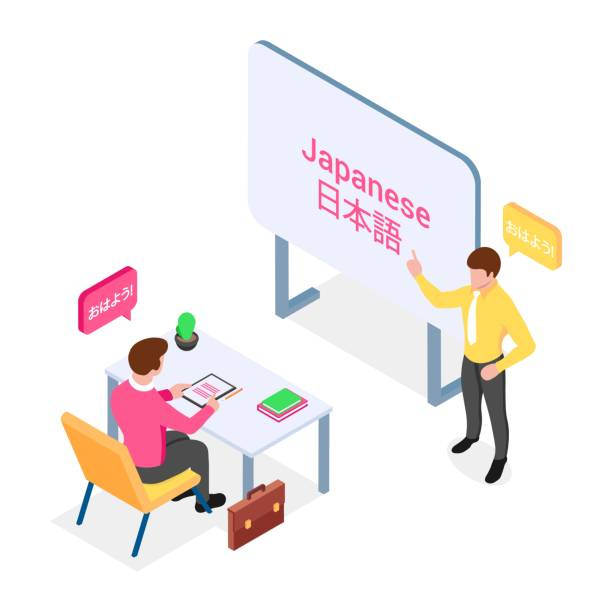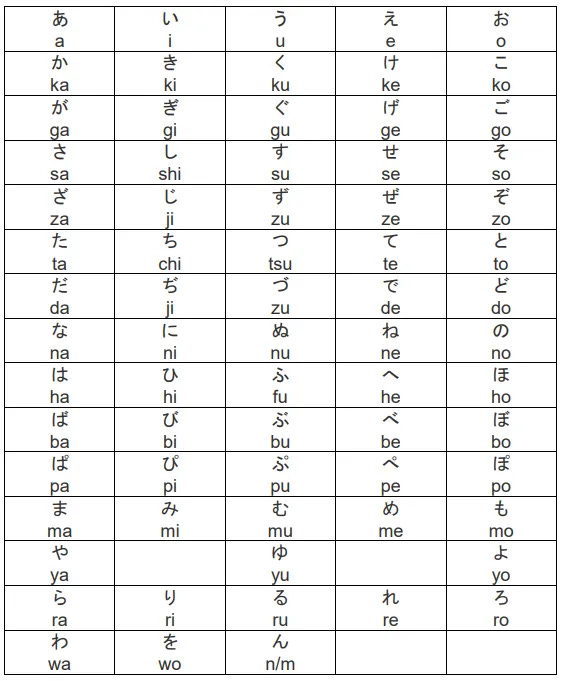Learning Japanese: 10 Common Mistakes You Should Know
Make the learning process easier, here we break down some of the common mistakes made by beginners when learning Japanese
Many beginners find the process of learning Japanese to be challenging and confusing due to its unique writing system and complex grammar rules. To overcome these obstacles and make the learning process easier, here we break down some of the common mistakes made by beginners when learning Japanese.
Learning the Japanese language is an exciting adventure for those looking to travel abroad, watch anime without subtitles, or communicate with native Japanese speakers. However, many beginners find the process of learning Japanese to be challenging and confusing due to its unique writing system and complex grammar rules.
To overcome these obstacles and make the learning process easier, here we break down some of the common mistakes made by beginners when learning Japanese so you can reach fluency more quickly!
Table of Contents:
Importance of Learning Japanese
Common Mistakes Made by Beginners When Learning Japanese
Refusing to Learn Hiragana and Katakana
Misunderstanding Japanese Grammar
Memorizing Vocabulary Without Context
Not Practicing Speaking and Listening Enough
Not Paying Enough Attention to Kanji
Relying Too Much on Translations
Make sure you have the books that use hiragana, katakana, and kanji
You Are Not Going to Become a Master by Watching Only Anime
Not actually using Japanese
Learning too quickly and getting stressed
Tips for Avoiding Mistakes and Enhancing Your Japanese Learning Experience
Master Hiragana and Katakana Early On
Limit Your Use of Romaji
Embrace the Unique Grammar of Japanese
Learn Vocabulary in Context
Practice Speaking and Listening Regularly
Conclusion
Importance of Learning Japanese
Learning Japanese has become really popular across the world due to its lots of advantages. One of the most important benefits of learning Japanese is gaining access to the country’s rich cultural history. This history covers traditional practices such as tea ceremonies and martial arts, as well as modern aspects such as anime and manga.
In addition to rich cultural history, learning Japanese also opens up a new world of business opportunities. Japanese businesses are industry leaders in areas such as technology, entertainment, and tourism, providing a lot of chances for those who are fluent in Japanese to be successful in these sectors.
Also, knowing Japanese can give individuals a competitive edge in the job market, making them valuable to businesses that have dealings with Japan. It also improves cognitive skills such as memory, focus and attention to detail, which are important for many professions.
In summary, learning Japanese has many benefits, including access to a rich cultural heritage, expanded business opportunities, and improved cognitive skills.
Common Mistakes Made by Beginners When Learning Japanese
Japanese is a difficult language that requires patience, dedication, and practice. Making mistakes is an unavoidable part of the learning process, but some mistakes can suppress your progress and make it more difficult to achieve your language goals. To improve your learning experience, it’s important to understand the most common mistakes made by beginners and learn how to correct them.
You can check my Japanese learning resources. 75% off now!
Click to see my Etsy shop! → Japanese Lessons Shop
1- Refusing to Learn Hiragana and Katakana
Do you find the Hiragana and Katakana writing systems too difficult? You can use Romaji to avoid it. Romaji is a way to write Japanese characters using the English alphabet. It might seem like an easy way out, but it can actually harm your progress in the future. Romaji doesn’t capture the nuances of Japanese characters and isn’t commonly used in Japan. As a beginner, it’s really important to learn Hiragana and Katakana rather than relying on Romaji alone while learning Japanese.
Here is our article about how you can learn Hiragana
Our Hiragana practice sheet for beginners
2- Misunderstanding Japanese Grammar
Japanese grammar is really important for learning Japanese and is quite different from English and the other Western languages. Beginners make the mistake of assuming that Japanese grammar follows similar patterns like their native language. However, this is not true. It’s really important to understand the particular grammar rules of Japanese to be able to speak and write it well.
Read more articles about Japanese language and Japan.
3- Memorizing Vocabulary Without Context
While memorizing vocabulary is really important for learning Japanese, many beginners make the mistake of memorizing words without context. Words can be easily forgotten or misused when not placed in their proper context. Learn Japanese vocabulary in context by using example sentences or talking to others in Japanese.
Check out my eBook about The Most Used 600 Japanese Words
4- Not Practicing Speaking and Listening Enough
Reading and writing in Japanese are important, but so are speaking and listening. Many beginners struggle to practice speaking and listening skills, which can limit their ability to communicate effectively in Japanese. Regularly practice speaking and listening, for example, through language exchange programs, games or language schools.
5- Not Paying Enough Attention to Kanji
Kanji are Chinese characters used in Japanese writing. They are an important part of the Japanese language and can help learners in better understanding the meaning of words and phrases. Beginners, on the other hand, commonly make the mistake of not paying enough attention to Kanji, resulting in difficulties reading and writing in the future. To get rid of this, you should try to learn Kanji in context and practice writing it. Studying kanji seems really hard at the beginning, but you get used to it after some time.
6- Relying Too Much on Translations
Relying too much on translators can affect your Japanese learning badly. Beginners commonly make the mistake of relying on translators rather than trying to understand the meaning of Japanese words or phrases. Translators might be wrong most of the time. (And they are…) This strategy affects their progress in the future, because they might use wrong words or phrases while communicating with native Japanese speakers. To overcome this, you should try to rely on your own abilities and use Japanese resources to learn the language.
7- Make sure you have the books that use hiragana, katakana, and kanji
One of the most common mistakes in learning Japanese is not using the right resources. For example, if you start with a mainly Romaji textbook, you won’t be able to get used to hiragana, katakana, and kanji until much later in your journey. You will become familiar with Romaji. Start with books that use Japanese characters right away. So you won’t deal with this issue later. Also it is really hard to move from Romaji after you get used to it.
8- You Are Not Going to Become a Master by Watching Only Anime.
Mastering Japanese is not as simple as learning only from anime. While watching shows with subtitles may help you learn a few new words, it will mostly leave you with an unfamiliar and informal way of speaking. For serious learners, watching anime raw and without subtitles is a better way to go. Just be sure that you are in the intermediate stages before this method.
9- Not actually using Japanese
It might seem weird, but a lot of people who study Japanese never actually use it. To truly master Japanese, it’s important to put what you’ve learned into practice right away. You can do this by talking with your friends in Japanese or using language apps which are focused on gathering a lot of people who are learning the same language together and making an environment to practice. Don’t just stop studying, take the next step and start using more Japanese in your daily life!
10- Learning too quickly and getting stressed
Learning too quickly can lead to feelings of stress and anxiousness as you may quickly forget the information you have learned. Rather than ‘quantity over quality’, when learning Japanese, take your time and focus on understanding it in-depth. Make sure that you internalize the knowledge, so that it becomes more easily retrievable.
Tips for Avoiding Mistakes and Enhancing Your Japanese Learning Experience
We present you some helpful tips and tricks to help your Japanese language learning experience. The goal is to improve your proficiency by avoiding common mistakes. To achieve this, we will cover a lot of aspects such as mastering hiragana and katakana, developing your speaking and listening skills and vocabulary.
Master Hiragana and Katakana Early On
To avoid the mistake of neglecting to learn Hiragana and Katakana, it’s essential to prioritize them early on in your learning journey. Focus on memorizing the characters and practicing reading and writing in these scripts.
Limit Your Use of Romaji
While Romaji may seem convenient, it’s crucial to limit your use of it as much as possible. Try to read and write in Hiragana and Katakana instead, and gradually transition to reading and writing in kanji as you progress.
Embrace the Unique Grammar of Japanese
To avoid the mistake of assuming Japanese grammar follows similar patterns as English, it’s essential to embrace the unique grammar of Japanese. Focus on understanding the unique sentence structures and verb conjugation patterns, and practice using them in context.
Learn Vocabulary in Context
One of the key aspects to learning Japanese effectively is to use words within context. Build connections with words by reading and listening to Japanese texts and conversations that include them, as well as practicing using them in your own writing and speaking. This will ultimately help you remember new Japanese vocabulary more easily.
Practice Speaking and Listening Regularly
To avoid the mistake of neglecting to practice speaking and listening, it’s essential to prioritize these skills in your learning journey. Join language exchange programs, find language partners, or attend language schools that offer conversation classes to practice your speaking and listening skills.
Conclusion about learning Japanese:
Learning Japanese is an exciting and challenging experience, but it’s essential to avoid common mistakes that can affect your progress. By prioritizing the fundamentals of the language, such as Hiragana and Katakana, unique grammar rules, vocabulary in context, and practicing speaking and listening skills regularly, you can enhance your learning experience and achieve fluency in Japanese. Remember to be patient, persistent, and enjoy the process. You’ll be well on your way to becoming fluent in Japanese.
Thank you for taking time to read our article, and all the best in your Japanese language journey!
For more info about learning Japanese, you can visit: https://www.nhk.or.jp/lesson/en/
You can check my Japanese learning resources. 75% off now!
Click to see my Etsy shop! → Japanese Lessons Shop



